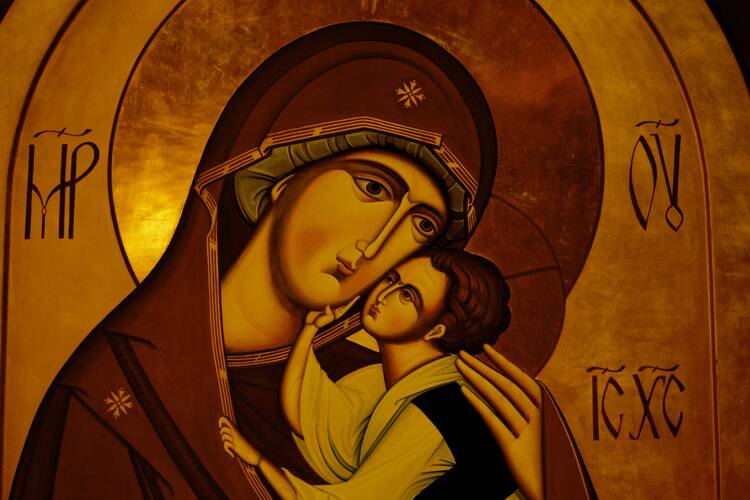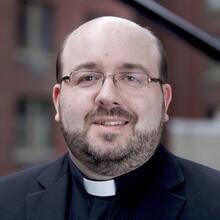A Reflection for the Feast of the Nativity of the Blessed Virgin Mary
Find today’s readings here.
This is one of those feasts whose presence in the liturgical calendar is a result of a sort of deduction. Scripture, of course, does not record Mary’s birth, but she must have been born, and so there is certainly something to celebrate.
We locate the feast of her birth nine months after the feast of her Immaculate Conception, mirroring the way Christmas follows nine months after the Annunciation. (Not being a liturgical historian, I am not sure whether today’s date for this feast or December 8th for the Immaculate entered the liturgical calendar first, but in any case they refer to each other.)
Since we do not have a biblical reading narrating Mary’s birth, the Lectionary chooses other readings. And today’s first reading is Micah’s prophecy that establishes Bethlehem as the birthplace of the Messiah: “You, Bethlehem-Ephrathah, too small to be among the clans of Judah, from you shall come forth for me one who is to be ruler in Israel.”
Meditate on the seemingly insignificant and constrained places and situations in our own lives, the places that we do not expect God to be at work.
This is prophecy, not just because it identifies where Jesus will be born, but also because it defies our expectations about the coming of the Messiah. Bethlehem is a small and insignificant place, “too small to be among the clans of Judah.” Yet from here, God will bring about the salvation of his people.
Bethlehem feels counterintuitive in a different way today. While it is a place of pilgrimage, centered around Manger Square and the Basilica of the Nativity, it is also located within the occupied West Bank. When I was there with an America Media pilgrimage, it was generally easy for a bus full of pilgrims to be waved through the checkpoint, sometimes with an Israeli soldier stepping onto the bus to check our guide’s credentials.
Yet as smoothly as the transition is facilitated for pilgrims and tourists, Bethlehem is a city surrounded by a wall, and those who live there are not free to readily travel beyond it. Crossing through that wall for the first time in 2018, I was reminded of the images of the Berlin Wall that I saw growing up. But in this case, the “free” side of the wall, the one decorated with graffiti in protest of the wall’s very existence, is the one we crossed into. The side of the wall we were staying on, when we went back to our hotel in Jerusalem, was clean and unmarked.
Of course, when Jesus was born in Bethlehem, it was also under occupation. Whatever the historical details of the census that brought Mary and Joseph to Bethlehem, it was a sign of Roman power and domination, of the reality that the people in Bethlehem and elsewhere in Judea were not free to choose for themselves when and where they would go.
Rather than directly overturning such constraints, God undoes them from within. God enters into realities that are insignificant and counterintuitive as sites for divine action, whether that is a small village or the life of a young woman who said, “Let it be done unto me.”
So as we celebrate Mary’s birth today, spare a thought and prayer for those who are not free to travel to and from Bethlehem. Meditate, perhaps, on the seemingly insignificant and constrained places and situations in our own lives, the places that we do not expect God to be at work.
And recall that God’s promise through the one to be born in Bethlehem of Mary is that “his greatness shall reach to the ends of the earth; he shall be peace.” That is what God does from a place “too small to be among the clans of Judah,” both 2,000 years ago and today.




